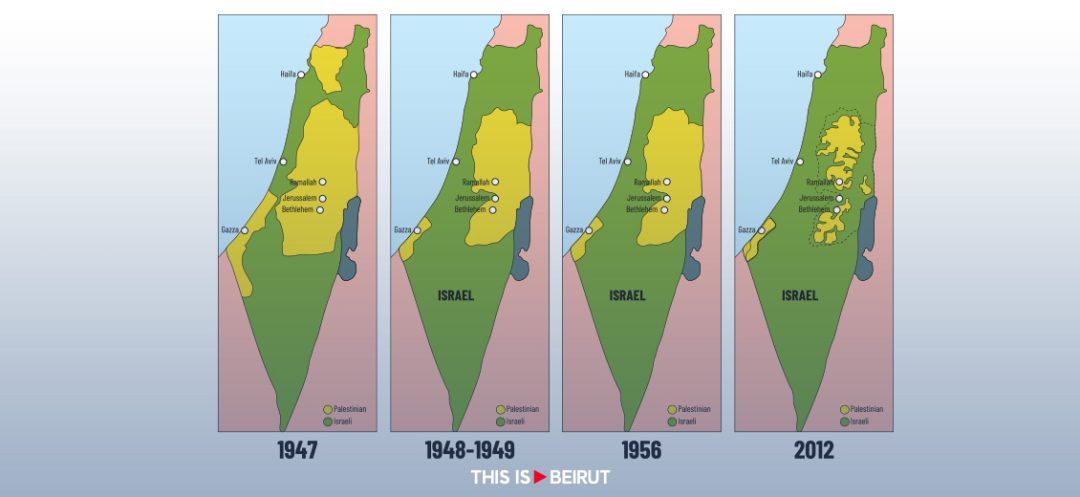- Home
- War in the Middle East
- Editorial – Gaza: The Day After

A (highly) cautious optimism marked the recent days of talks in Paris initiated at the end of last week by senior American, Israeli, Egyptian and Qatari officials. The sought-after objective is to achieve a ceasefire of at least one month, possibly two, in the Gaza conflict, with a particular focus on securing the release of hostages held by Hamas. However, in the medium and longer terms, the – perhaps elusive – ambition of international decision-makers is to set in motion, following the ceasefire, a process for a comprehensive solution to the Middle East crisis, grounded in the two-state option.
Since the deadly attack launched by Hamas on October 7, the "two-state solution" has been prominently discussed, emerging as the rallying cry of Arab and international entities. Historically, such an option has been, in an irregular manner, at the core of the Middle East conflict since the proclamation of the State of Israel in May 1948. The UN vote in November 1947 on the partition plan for Palestine aimed at creating two states. At that time, the partition plan envisioned a Palestinian state with a geographical scope (encompassing the West Bank and Gaza) roughly equivalent to the nascent Israeli state.
As the champions of irrationality and populist demagoguery, the Arab countries were expected to reject the partition plan and, consequently, the Palestinian state project. Following the first Arab-Israeli war of 1948-1949, Jordan took control of the West Bank, while Gaza came under the sovereignty of Egypt. Both territories would be occupied by Israel during the June 1967 war, leading to a subsequent policy of ongoing "territorial nibbling" through the gradual establishment of Israeli settlements in these two Palestinian territories.
With the signing of the Oslo Accords in September 1993, thanks to the bold (and pragmatic) political decision made by Yasser Arafat's PLO and the Israeli Labor government led by Yitzhak Rabin, Palestinians found themselves presented with a new, tangible opportunity to establish an independent state alongside Israel, based on the recovery of the West Bank and Gaza. However, this opportunity, along with the entire Oslo process, which laid the groundwork for unexpected peace in the region, was sabotaged both by the Israeli right after the assassination of Yitzhak Rabin in November 1995 and by Hamas, which carried out several terrorist attacks in Israel for this purpose.
Today, the two-state solution is once again on the agenda of international and Arab entities. However, it is once again rejected by the same two obstructive actors: Hamas and the Israeli far-right. They seem to be playing the warmongers without proposing an alternative to Oslo. The pursuit of war, at the expense of the sufferings endured by civilian populations facing repeated armed conflicts, appears futile.
Over the decades, the situation for both populations have only worsened. On the Palestinian side, a quick look at the evolution of the geographical boundaries of this region from 1947 to the present day reveals how the territory that could and should have constituted the Palestinian state has consistently dwindled year after year, conflict after conflict. The more Palestinians miss opportunities, the more their territory shrinks and becomes "sliced up" by Israeli settlements.
On the side of the Israeli far-right, the stance is equally irrational and politically devastating for the future of the region. The war in Gaza will inevitably come to an end, and some international entities are already planning for "the day after." Blocking the establishment of an independent Palestinian state alongside Israel would essentially mean opting for a binational state. This would condemn the Israeli population to endure the relentless challenges of an almost constant civil war and recurring terrorist attacks. Too much blood has been shed, and too much hatred has been fostered over the decades. The belligerent atmosphere would be even more difficult to bear as, within a binational state, Israelis would quickly face a serious demographic issue against the Palestinian population.
Regional decision-makers are now confronted with a dichotomous choice: permanent war or enduring peace. The latter option is intrinsically linked to a necessary return to the spirit of Oslo. Any deviation from this path would be self-destructive.
Read more




Comments